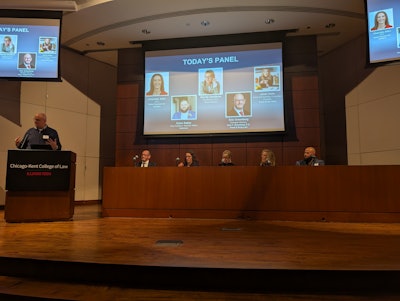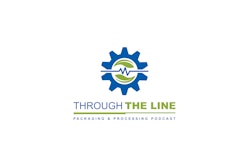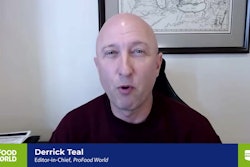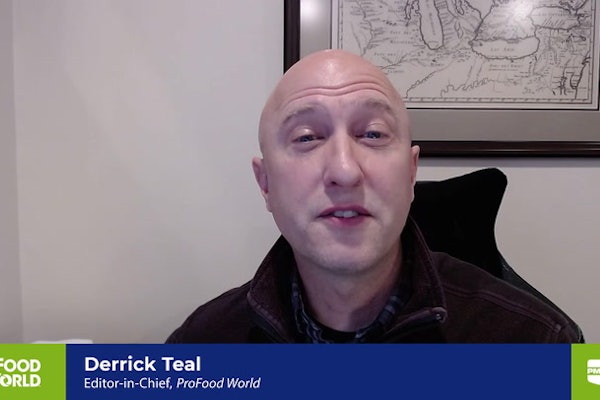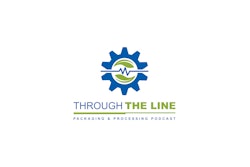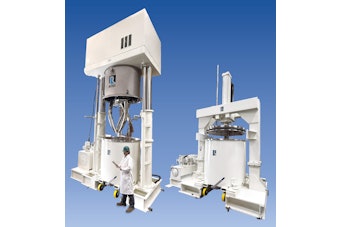During the Chicagoland Food & Beverage Network's ‘Ultra-Processed Foods’ panel in Chicago on Oct. 22, food industry experts offered insight into the perception and handling of definitions, implications, and regulations of ultra-processed foods (UPFs), noting the importance of science-driven research impacting information and communication about such foods to consumers.
Five panelists, which included a food scientist, two registered dietitians, a CPG leader of over 25 years, and a food law attorney, noted the ambiguity surrounding UPFs amid trends that indicate the products are bad for consumer health, which why Wendy Davidson, CEO and Board Director representing several CPG brands, said demystifying the concept of UPFs is key.
Similarly, Wendelyn Jones, Executive Director on the Board of Trustees for The Institute for the Advancement of Food and Nutrition (IAFNS), who was not panelist, but introduced them to the audience of food and beverage professionals, set the stage by outlining what several organizations define UPFs as, with Nova (the name for the level-of-processing system developed by the Center for Epidemiological Studies in Health and Nutrition, School of Public Health at the University of São Paulo in Brazil), defining UFPs as “industrially created food products created with the addition of multiple ingredients.”
While the ultra-processed term is often stigmatized as unhealthy, not all UPFs are created equal, Janet Helm, a registered dietitian (RD), Food and Nutrition Consultant and Founder of Food at the Helm, stated during the panel. Helm explained that some UPFs, such as wheat bread, are nutrient dense, and thus, the conversation should shift less about the processing levels of foods and incorporate more nutrition considerations.
Like Helm, Dylan Bailey is also an RD, and as Vice President of Nutrition Affairs for Ketchum, he’s performed research that studies consumer attitudes around UFPs. A key statistic Bailey laid out was in a sample of surveyed consumers, 67% indicated that transparency from food producers around UFPs was a “need” rather than a “want.” He also pointed how many consumers are gravitating toward AI-generated summaries in search engines and social media for their nutrition information, which creates a “race,” an urgency for food producers to reach consumers with trusted information about their products.
Take advantage of attention and reframe thinking around UFPs
With initiatives such as ‘Make America Healthy Again’ (MAHA), a plan led by Secretary Robert F. Kennedy, Jr. to reform U.S. food, health, and scientific systems to identify the root causes of the chronic disease epidemic, trending in 2025, panelists at Wednesday’s event noted the timeliness for food companies to establish trust and transparency on UFPs.
Eric Greenberg, Principal Attorney of Eric F. Greenberg, P.C. Food & Drug Law, noted how attempting to foresee regulations regarding UFPs would nearly be guesswork. However, he said food companies should pay attention to how UPFs are stigmatized when considering any changes such a reformulations or communications strategies.
Going off that, Charlotte Allen, who holds a PhD in food science and is CEO of Rebel Success for Leaders, explained that companies can take advantage of the moment to reframe thinking around UPFs in 2025.
“Instead of running to catch the train that has already left the station, how can we think about completely reframing [the conversation around UPFs] and getting out ahead of it?” Allen proposed.
A combined framework of understanding that UPFs can be a part of a balanced diet, rather than turning perception toward villainizing them for being highly processed, as well as providing trusted information to consumers backed by scientific research, could be the key that leads to balanced conversation.
Wendelyn Jones stressed that R&D scientists can provide “tweaks” to food products companies may want to change ingredients in, and thus effectively market the product to consumers. Still, it takes a collaborative effort to take a balanced approach to UPFs, as according to Jones, “This is the time for everybody to connect all the way across the food system, collaborate across sectors, and catalyze designs that acknowledge science is crucial to aligning polices with public health.”
Wendy Davidson, a final panelist and CEO and Board Director representing several CPGs, captured the takeaways with an opportune statement on the conversation around UPFs.
“In my 30 years of the industry, I don’t think there’s a better time to be in food,” Davidson asserted. “This is our time as an industry to rise to the occasion. I don’t think there’s been a better time to be in the food industry and really shape what the future [holds].”
